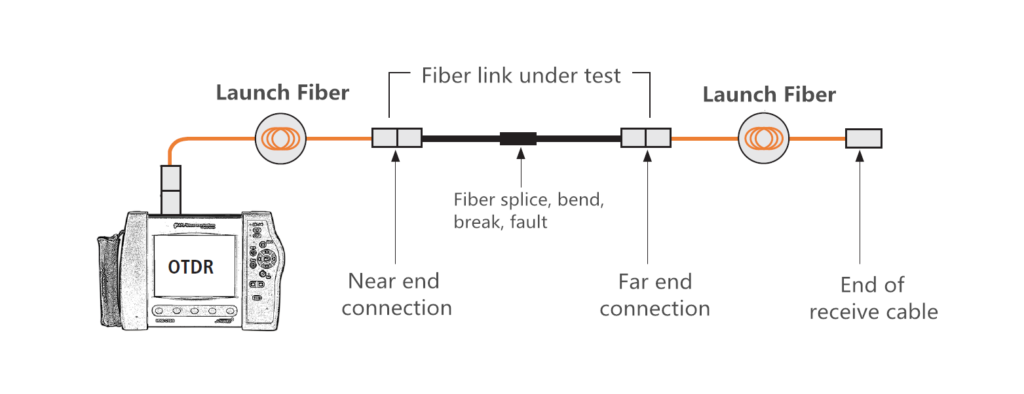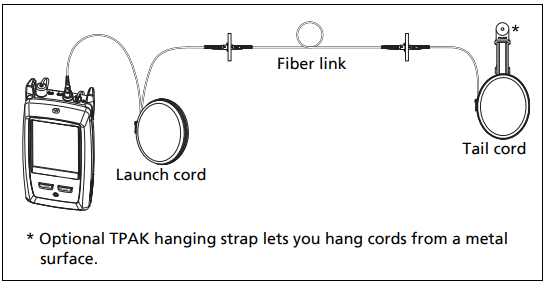The launch fiber cable helps to negate blind spots or the dead zones of an otdr which occures when there is high launch power or faults near the.
Otdr testing launch cable length.
The optical time domain reflectometer otdr is an essential tool.
Measurement using a launch cable launch cable launch cable otdr 1m patchcord bulkhead reflective event with loss fiber under test start of fut end of fut end of launch cable these reflections will be small if the connectors are clean in good condition clean protect the launch cable connectors 1m patchcord.
It can verify splice loss measure length and find faults.
For very long haul 4000 m of cable may be used.
Fiber ring otdr launch cable connects the otdr to the link under test and relays insertion loss and reflectance of the near end connection.
This help to avoid variations in loss and distance measurements when testing.
The otdr is also commonly used to create a picture of fiber optic cable when it is newly installed.
The chosen launch test cable should therefore be longer than the pulse dead zone used for the tests.
Otdr testing with launch cable.
The next step in setting up an otdr test is the proper connection of launch and receive cables at either end of the fiber link.
For instance a 1 µs pulse is approximately 100 m long.
Launch receive cables for automated bi directional fiber optic testing and pass fail analysis of two fibers in a single test using the smartloop otdr.
The launch cable is the link between the otdr test port and the fiber link being tested it is used to stabilize the test pulse and to enable the otdr to recover from transmitting the test pulse in order to see.
The length of the launch and receive cables depends on the link being tested generally between 300 m and 500 m for multimode testing and between 1000 m and 2000 m for single mode testing.
The optical time domain reflectometer otdr is useful for testing the integrity of fiber optic cables.
Typically the length of an otdr s dead zone is equivalent to that of the optical pulse plus a few meters.








